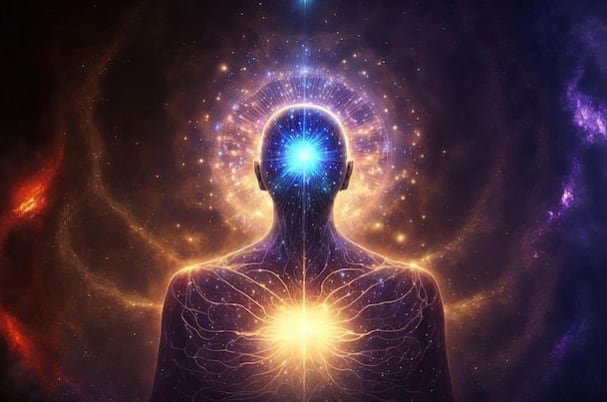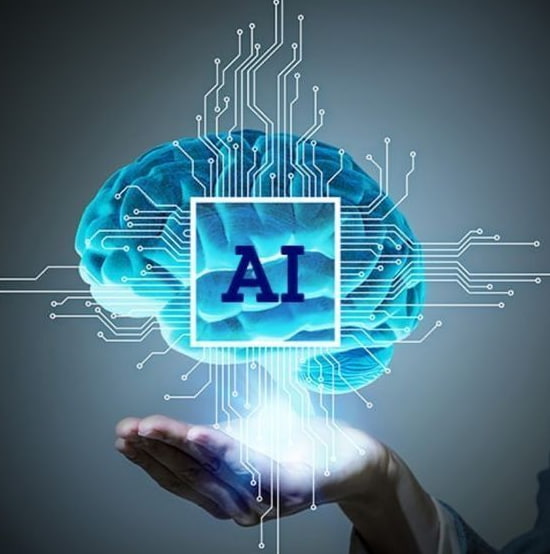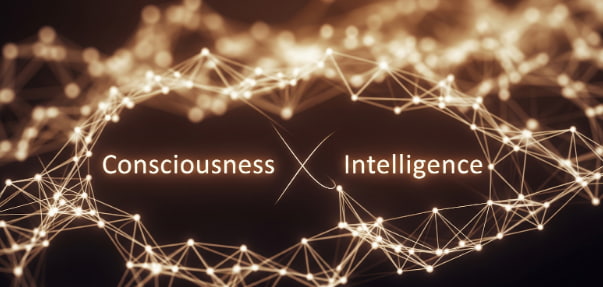Consciousness represents your inner awareness and subjective experience, while intelligence refers to your ability to process information, solve problems, and adapt to new situations.
These two fundamental aspects of human cognition operate through different mechanisms and serve distinct purposes in how we navigate and understand our world around us.
This article explores key differences between Consciousness And Intelligence, examines their relationship, and investigates how artificial intelligence challenges our understanding of both concepts in modern technology.
Consciousness Vs Intelligence: Key Differences
Consciousness focuses on an individual’s sense of being, while intelligence emphasizes objective problem-solving abilities and cognitive processing capabilities in various situations.
| Parameter | Consciousness | Intelligence |
|---|---|---|
| Definition | The state of being aware of self and the environment. | Ability to learn, reason, and adapt. |
| Core Nature | Subjective and experiential | Objective and measurable |
| Presence in Machines | Not yet present in AI | Present in current AI systems |
| Biological Basis | Emerges from the brain and neural networks | Arises from the brain structures or an algorithm |
| Self-awareness | Always present | May or may not be present |
| Emotional Experience | Experience feelings and emotions | Simulates but doesn’t feel emotions |
| Decision-making | Intuition and emotion-influenced | Logic and data-driven decisions |
| Learning Mechanism | Based on reflection and personal experience | Based on data processing and feedback |
| Examples | Human awareness, dreaming, and pain sensation | AI systems, human reasoning, and language skills |
Intelligence can be measured and replicated in machines, whereas consciousness remains an elusive quality tied to internal perspective and personal awareness.
Nature Of Consciousness And Intelligence
Consciousness is the internal awareness of thoughts, feelings, and surroundings. It includes Inner perceptions, such as pain, pleasure, and self-reflection, making it deeply personal, unquantifiable, and currently not reproducible by machines or algorithms.

Intelligence refers to the cognitive ability to learn, reason, and adapt to new situations. It is logical, measurable, and often task-focused. Unlike consciousness, it can be replicated in artificial systems without involving emotions or self-awareness. Intelligence is problem-solving ability.
Meditation facilitates the enhancement of consciousness and psychological well-being. For those seeking to develop their consciousness through structured learning, various mindfulness and personal development courses offer systematic approaches to enhancing awareness and cognitive abilities.
Philosophical Perspectives: Consciousness Vs Intelligence
The Stanford Encyclopedia of Philosophy says consciousness is the “hard problem,” focusing on internal aspects of the mind beyond physical explanation. As per them:
- Consciousness includes the felt qualities of perception(qualia).
- It’s difficult to explain through physical brain processes alone.
- It may be a fundamental, irreducible aspect of reality.
- Distinction between “easy” (cognitive) and “hard” (experiential) problems.
On Philosophy Stack Exchange, intelligence is described as functional and observable, whereas consciousness is internal and subjective. According to this, Intelligence relates to reasoning, learning, and problem-solving, while Consciousness involves awareness and experience. AI can be intelligent without being conscious.
Artificial Intelligence with Consciousness And Intelligence
AI systems exhibit intelligence by processing data, learning patterns, and solving problems efficiently. They mimic human reasoning and decision-making but lack any genuine awareness or inner experience behind their actions. Current AI lacks consciousness; it does not possess self-awareness, emotions.

According to the EMBS Pulse, AI systems demonstrate advanced data processing and problem-solving abilities but lack true consciousness or self-awareness. The article highlights that while AI can mimic cognitive functions, genuine experiences remain unique to biological beings and are beyond current technological capabilities.
The AAAI Symposium paper states that AI can mimic cognitive consciousness, such as attention, but cannot replicate inner sense. Theories like the Global Workspace may model cognition, but not genuine phenomenal consciousness.
Can Machines Ever Be Conscious?
The question of machine consciousness remains a widely debated topic. Although AI can mimic intelligent behavior, it does not possess the internal sense of being required for true consciousness. AI systems show intelligence with logical precision. However, they do not possess consciousness because they lack awareness or feelings.
The Reddit thread argues that computers will never be conscious because consciousness requires sense of presence and self-awareness, which machines inherently lack. It emphasizes that no matter how advanced AI gets, it remains a simulation without genuine feelings or awareness.
The OpenAI forum discussion focuses on whether AI can ever feel pain or emotions. Most contributors agree that current AI lacks consciousness and inner sense of self, but some speculate that future AI with higher complexity might challenge the strict separation between intelligence and consciousness.
Ethics And Intuition: Intelligence vs Consciousness
According to PMC’s research, consciousness plays a critical role in ethical behavior by enabling empathy and emotional insight, which help humans consider the lived experiences of others. This emotional layer supports intuitive moral judgments beyond just rational calculation.
- Consciousness enables awareness of emotional and moral dimensions.
- Empathy and subjective feelings guide moral choices.
- Intuition often stems from conscious reflection and experience.
As Stanford Encyclopedia of Philosophy’s entry on Intuitionism, ethical intuitionism suggests moral truths are self-evident and known through intuition, not derived through logical deduction alone. Intelligence can structure moral reasoning, but intuitive understanding (linked to consciousness) offers foundational ethical insight.
- Moral truths can be known through immediate intuition.
Intelligence aids analysis, but intuition informs the essence of ethics. - Conscious awareness is essential for perceiving moral “rightness.”
Understanding the relationship between consciousness and mental health is crucial, as recent depression statistics reveal how consciousness-related factors impact global mental health outcomes.
What Moral Responsibilities Do We Have Toward Intelligent Systems?
As AI systems become more sophisticated, questions arise about our ethical obligations toward them. Currently, most experts agree that AI lacks consciousness and therefore doesn’t experience suffering or well-being in ways that would demand moral consideration.
However, if machines eventually develop consciousness, we may need to reconsider their moral status and our responsibilities toward them.
Interdependence Of Consciousness And Intelligence
Consciousness and intelligence often work in tandem in humans, with awareness providing context and meaning to intelligent processing, while cognition shapes conscious experience.

Evidence suggests these capacities can exist independently. AI systems shows intelligence without consciousness, while some individuals with cognitive impairments retain conscious awareness despite reduced intellectual abilities.
This separation indicates that consciousness and intelligence represent distinct phenomena, though they typically interact and enhance each other in healthy human cognition.
Want more on personal growth and high performance? The Mind Membership podcast has valuable episodes for you.
Future Outlook: Consciousness vs Intelligence With AI
The future relationship between consciousness and intelligence in artificial systems remains uncertain but fascinating.
The BBC explores rising concerns around whether advanced AI systems like ChatGPT could ever truly become conscious. While these systems display remarkable intelligence, experts stress that mimicking human-like responses doesn’t equate to real awareness.
- Intelligence is functional and performance-based.
- Consciousness involves a sense of being, which AI lacks.
- Experts remain skeptical that digital systems can ever attain real sentience.
Renovatio: AI vs Human Consciousness emphasizes that human consciousness is deeply rooted in spirituality, moral understanding, and lived experience. Unlike AI, human awareness connects to ethical reasoning through personal meaning and emotional depth.
- Consciousness is not replicable through logic alone.
- Intelligence in AI lacks existential awareness.
- True moral agency and inner experience define human consciousness.
Current meditation research demonstrates measurable impacts on both consciousness and cognitive functions. Over 275 million people practice meditation globally.
As AI advances, the line between smart behavior and real awareness may blur, but intelligence doesn’t guarantee consciousness. The future may bring surprises, but for now, machines still don’t “feel” anything.
Conclusion: Consciousness Is The Experience Of Being, And Intelligence Is The Ability To Think!
Consciousness involves personal experience, whereas intelligence reflects logical reasoning and ability. Machines can simulate intelligence, but they lack the emotional depth and personal awareness tied to consciousness.
The debate over machine consciousness reveals a clear distinction that current AI performs tasks and learns patterns, but doesn’t “feel” or possess self-awareness.
Looking ahead, as technology advances, the boundary between smart behavior and real awareness may blur. However, recognizing the difference between the two remains essential as we explore the future of machine cognition and human-like systems.
FAQs
Intelligence and consciousness are distinct concepts. Intelligence is about logic and learning. Consciousness is about awareness and feeling.
Consciousness can exist with limited intelligence. Some medical conditions affect cognitive abilities while preserving awareness.
Consciousness is not required for intelligence. AI systems prove that intelligence can exist without awareness.
IQ measures cognitive intelligence but doesn’t directly correlate with consciousness levels.
Current AI systems do not possess consciousness. They simulate understanding without awareness or emotions.
Phenomenal consciousness, the subjective, experiential aspect of mental states, is widely accepted to exist in humans and is likely to exist in other animals as well.
